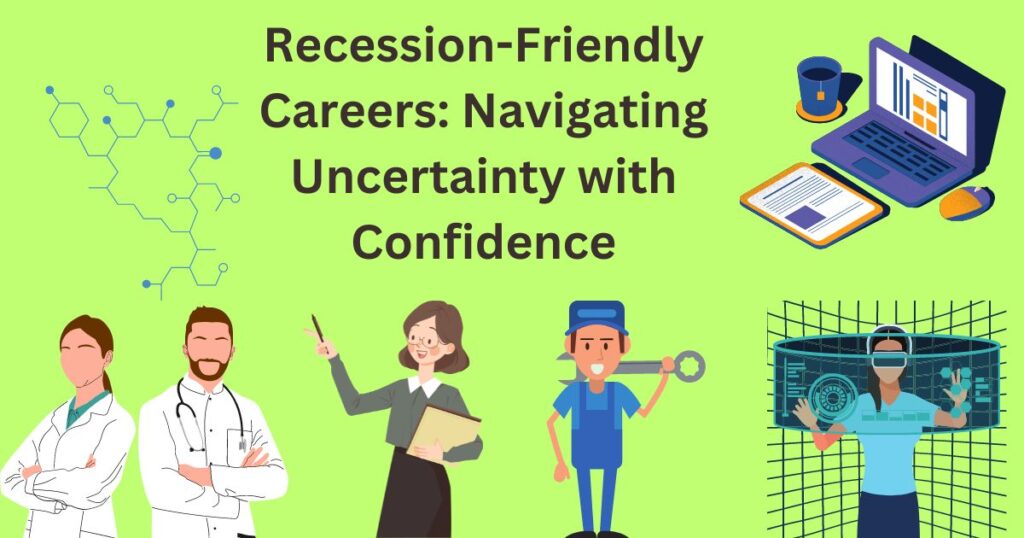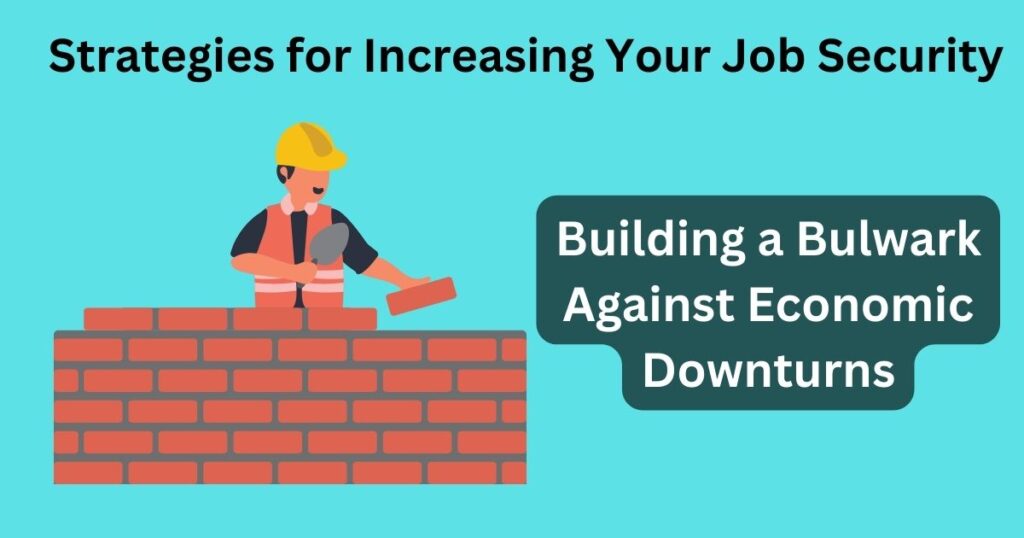The year 2024 is looming large, and with it comes growing anxiety about the potential for a recession in the United States. Economic indicators are flashing warning signs, and experts and ordinary citizens are starting to feel the pressure.

What is a recession?
A recession is defined by the National Bureau of Economic Research as “a significant decline in economic activity that is spread across the economy and lasts more than a few months.” This decline is typically reflected in a decrease in economic output, employment, and income.
Why are we worried about a recession in 2024?
Several factors are contributing to the current economic anxiety:
- The Federal Reserve’s interest rate hikes: To combat inflation, the Federal Reserve has been raising interest rates. This makes it more expensive for businesses to borrow money and can lead to slower economic growth.
- Global economic uncertainty: The war in Ukraine, the ongoing pandemic, and other geopolitical tensions are all contributing to global economic uncertainty. This can hurt the US economy.
- Rising inflation: Inflation is at a 40-year high, which is eroding consumer purchasing power and causing businesses to raise prices. This can lead to slower economic growth and higher unemployment.
What are the potential consequences of a recession?
A recession can have a devastating impact on individuals, families, and businesses. Some of the potential consequences include:
- Job losses: A recession can lead to widespread job losses, as businesses cut back on spending due to decreased demand for their products or services.
- Increased poverty and homelessness: As people lose their jobs and their income falls, they may be unable to afford necessities like food and housing.
- Business closures: Many businesses may not be able to survive a recession and may be forced to close their doors.
- Decreased investments: Businesses and individuals may be less likely to invest during a recession, which can further slow down economic growth.
What can you do to prepare for a recession?
While a recession may seem inevitable, there are many things you can do to prepare for its potential impact. Here are a few tips:
- Create a budget and track your expenses. This will help you to identify areas where you can cut back on spending.
- Build an emergency fund. This will give you a financial cushion to fall back on if you lose your job or have other unexpected expenses.
- Pay down debt. This will reduce your monthly expenses and make it easier to manage your finances during a recession.
- Invest in your skills and education. This will make you more marketable and increase your chances of finding a new job if you are laid off.
- Stay informed about the economy. This will help you to make informed decisions about your finances.
By following these tips, you can take steps to protect yourself and your family from the potential negative consequences of a recession.
Navigating Uncertainty with Confidence
While a recession can be a challenging time for many, certain career paths offer greater stability and security even in the face of economic downturns. These “recession-friendly” careers often exhibit several key characteristics that make them more resilient to economic fluctuations.

1. High Demand and Low Competition:
- These careers are in fields where there is a constant need for skilled professionals, even during economic downturns. This is often due to the essential nature of the work or the limited number of qualified individuals available.
- Examples include healthcare professionals like nurses, physicians, and therapists, as well as education professionals like teachers and professors. These fields are always in high demand, regardless of the economic climate.
2. Essential Skills that Remain Valuable:
- The skills required for these careers are fundamental and transferable, meaning they can be applied to various positions and industries. This adaptability makes these professionals valuable even if their specific job duties change during a recession.
- For instance, skills like problem-solving, communication, and critical thinking are highly sought-after across various sectors, making them valuable assets in a shifting economy.
3. Stable Industries that are Less Susceptible to Downturns:
- The industries these careers are associated with are generally less sensitive to economic fluctuations. They often provide essential services or products that people need regardless of their financial situation.
- Examples include utilities, public safety, and food and beverage industries. These sectors are vital to everyday life and tend to remain relatively stable even during economic downturns.
4. Opportunities for Growth and Advancement:
- These careers offer the potential for career progression and specialization, allowing individuals to develop their skills and expertise over time. This growth potential can enhance job security and provide opportunities for higher income.
- For instance, nurses can pursue advanced degrees to become nurse practitioners or specialists, while teachers can acquire additional certifications to move into administrative or leadership roles.
By understanding these key characteristics, individuals can identify recession-friendly career paths that offer greater stability and security. This foresight can be crucial in navigating economic uncertainty and building a successful career in any economic climate.
Exploring Options for Stability and Security
In the face of a looming recession, identifying and pursuing the right career path becomes more critical than ever. While no career is entirely immune to economic fluctuations, certain professions offer significantly greater stability and security even amidst turbulent times. By exploring these “recession-friendly” careers, individuals can equip themselves with the tools and knowledge necessary to navigate uncertainty and build a thriving future.
1. Healthcare:
As a pillar of society, the healthcare industry remains relatively insulated from economic downturns. With a constant demand for skilled professionals, various healthcare careers offer promising options for job security.
- Nurses: Highly skilled and compassionate nurses are in perpetual demand, with opportunities across diverse healthcare settings.
- Physicians: Medical doctors play a crucial role in healthcare delivery, ensuring their consistent needs and job security.
- Therapists: Physical therapists, occupational therapists, and speech therapists provide essential services to patients of all ages, making their positions relatively recession-proof.
2. Education:
The education sector, with its fundamental role in shaping future generations, exhibits remarkable resilience in the face of economic challenges. Various positions within this sector offer stability and security for individuals seeking a recession-proof career.
- Teachers: Educators across various disciplines are essential for the educational system, ensuring a consistent need for qualified teachers.
- Professors: Higher education institutions require experienced professors to impart knowledge and guide future professionals, creating stable employment opportunities.
- Educational administrators: From managing school operations to overseeing educational programs, administrators play a vital role, in ensuring their positions are relatively recession-proof.
3. Information Technology:
The ever-evolving world of information technology is characterized by continuous innovation and advancement. This dynamic environment presents numerous opportunities for individuals seeking stable and secure careers.
- Software developers: Skilled developers are highly sought-after across various industries, creating a stable job market for these professionals.
- Cybersecurity specialists: With the increasing dependence on technology, cybersecurity experts are crucial for protecting vital information, ensuring consistent demand for their expertise.
- Cloud computing experts: As businesses migrate to cloud-based solutions, the need for cloud computing experts is expected to continue growing, offering promising career opportunities.
4. Accounting and Finance:
The financial sector, responsible for managing and safeguarding financial assets, remains relatively stable even during economic downturns. This makes careers in accounting and finance promising options for individuals seeking recession-proof jobs.
- Financial advisors: Individuals seeking financial guidance rely on the expertise of financial advisors, ensuring a consistent demand for their services.
- Accountants: Businesses and individuals alike require the services of accountants to manage finances and comply with regulations, creating a stable market for these professionals.
- Tax specialists: Navigating complex tax regulations necessitates the expertise of tax specialists, ensuring a consistent need for their skills.
5. Public Safety:
The vital role of public safety professionals in maintaining order and protecting communities makes these careers highly resistant to economic fluctuations.
- Police officers: Responsible for enforcing laws and safeguarding communities, police officers remain in constant demand, ensuring job security.
- Firefighters: Skilled and courageous firefighters dedicate themselves to protecting lives and property, making their positions critical and recession-proof.
- Emergency medical technicians: Providing emergency medical care in critical situations, EMTs play a vital role in saving lives, guaranteeing a consistent need for their services.
These are just a few examples of the diverse career paths that offer stability and security even during economic downturns. By exploring these options and considering their alignment with their skills, interests, and values, individuals can make informed decisions and build a thriving career that is resilient to the challenges of economic uncertainty.
Strategies for Increasing Your Job Security: Building a Bulwark Against Economic Downturns

As the specter of a recession looms, concerns about job security naturally take center stage. While the economic landscape may seem uncertain, individuals can take proactive steps to strengthen their position and increase their job security. By embracing the following strategies, they can build a bulwark against economic downturns and navigate the challenges with greater confidence.
1. Cultivate In-Demand Skills:
One of the most effective strategies for enhancing job security is to continuously develop and hone in-demand skills. This involves staying abreast of industry trends, identifying emerging skills, and actively acquiring them through formal training, online courses, or self-directed learning.
For example, in the technology industry, proficiency in artificial intelligence and machine learning is becoming increasingly valuable. Similarly, in healthcare, knowledge of telemedicine and digital health technologies is gaining traction. By staying ahead of the curve and acquiring these sought-after skills, individuals become more valuable assets to their employers and increase their employability in the face of economic challenges.
2. Network and Build Relationships:
Strong professional networks are invaluable not only for career advancement but also for enhancing job security. Building relationships with colleagues, mentors, industry professionals, and former classmates creates a web of support and opens doors to new opportunities.
Active participation in industry conferences, professional organizations, and online forums effective way to expand one’s network and connect with like-minded individuals. These connections can provide valuable insights, recommendations, and even potential job leads, especially during times of economic uncertainty.
3. Embrace Adaptability and Willingness to Learn:
The dynamic nature of the modern economy demands individuals to be adaptable and willing to learn new things. This includes being open to new opportunities, adjusting to changing job requirements, and acquiring new skills to remain relevant in the workforce.
Furthermore, fostering a growth mindset and embracing challenges as opportunities for learning are crucial for navigating economic downturns. This positive outlook allows individuals to adapt to changing circumstances, overcome obstacles, and thrive in a dynamic environment.
4. Pursue Additional Certifications or Qualifications:
Investing in professional development through additional certifications or qualifications can significantly enhance job security. These credentials demonstrate commitment to the profession, validate existing skills, and open doors to new career opportunities.
For instance, in the accounting field, pursuing a Certified Public Accountant (CPA) designation can significantly enhance one’s job security and earning potential. Similarly, in the healthcare industry, certifications in various specialties can improve career prospects and increase one’s value as a healthcare professional.
5. Be Proactive in Your Job Search and Career Development:
Even when employed, staying active in the job market demonstrates initiative and proactive career management. This includes regularly updating one’s resume and online profiles, researching potential opportunities, and engaging in networking activities.
Furthermore, exploring freelance or side hustle opportunities can provide additional income and diversify one’s income streams, offering financial security and flexibility during economic downturns.
By implementing these strategies and fostering a proactive approach to their career development, individuals can significantly enhance their job security and navigate economic uncertainty with confidence. By building a strong skill set, cultivating strong professional networks, and embracing adaptability, they can position themselves for success regardless of the economic climate.
Resources for Finding Recession-Proof Jobs
Navigating the Journey with Confidence: In the face of a looming recession, the search for stable and secure employment becomes paramount. Fortunately, numerous resources exist to assist individuals in navigating this journey and finding recession-proof jobs that offer peace of mind and opportunity for professional growth.

1. Government Websites and Job Boards:
Government websites like the Bureau of Labor Statistics and the Department of Labor offer valuable information on job market trends, including projected growth and wages for various occupations. They also host comprehensive job boards listing government and private-sector positions, providing a wealth of opportunities to explore.
2. Professional Associations and Industry Organizations:
Joining professional associations and industry organizations specific to one’s field offers access to valuable resources and career support. These organizations often provide job boards, networking events, and professional development workshops, equipping individuals with the tools and knowledge to navigate the job market and find recession-proof opportunities.
3. Online Job Boards and Career Websites:
Popular online job boards like LinkedIn, Indeed, and Glassdoor offer a vast database of job postings across diverse industries and locations. These platforms allow individuals to search for specific positions, set job alerts, and connect with potential employers, making them valuable resources for job seekers.
4. Networking Events and Conferences:
Actively participating in industry-specific conferences, workshops, and networking events offers valuable opportunities to connect with professionals, build relationships, and gain insights into the job market. Attending such events allows individuals to showcase their skills and qualifications, potentially leading to new job opportunities.
5. Career Counselors and Job Coaches:
Seeking guidance from career counselors and job coaches can immensely benefit individuals seeking recession-proof jobs. These professionals provide personalized advice, help individuals identify their strengths and interests, and assist them in crafting a career roadmap that aligns with their goals and offers stability during economic downturns.
Additional Resources:
- The National Bureau of Labor Statistics Occupational Handbook
- The U.S. Department of Labor CareerOneStop
- Skillshare
- Coursera
By utilizing these resources effectively, individuals can gain valuable insights into the job market, identify and pursue recession-proof careers, and confidently navigate economic uncertainty. Building a strong foundation of knowledge, skills, and networks empowers individuals to embrace new opportunities and thrive in any economic climate.
As we stand at the precipice of a potential recession, the anxieties around job security are understandably heightened. However, amidst these uncertainties, it is crucial to remember that proactive planning and strategic career development can significantly enhance one’s resilience in the face of economic downturns. By focusing on the key characteristics of recession-proof careers, actively pursuing in-demand skills, and embracing a lifelong learning mindset, individuals can navigate economic challenges with confidence and build a future-proof career.
Conclusion:
By embracing these principles and actively managing their career development, individuals can build resilience and navigate economic uncertainties with confidence. Remember, the key lies in taking control of your future, investing in your growth, and embracing a proactive approach to your professional journey. Regardless of the economic climate, adaptable, skilled, and determined individuals can find success and build a thriving career for themselves.
Though the future may seem uncertain, there is still power in proactive preparation and a commitment to continuous growth. By aligning your career path with recession-proof principles and actively building your skills and network, you can navigate economic challenges with confidence and create a fulfilling future for yourself.
Call to Action: Embracing Proactive Strategies for a Secure Future
With the possibility of a recession looming large, it’s natural to feel apprehensive about the future. However, the path forward doesn’t have to be shrouded in uncertainty. By embracing proactive strategies and taking control of your career development, you can build a foundation of stability and resilience, allowing you to navigate economic challenges with confidence.
Here are some actionable steps you can take today:
- Assess your current career path: Analyze your skills, interests, and values to identify if your current career aligns with recession-proof principles.
- Explore recession-friendly career options: Research professions in stable industries that offer high demand and low competition, such as healthcare, education, and information technology.
- Identify your skill gaps: Evaluate the essential skills required for your desired career path and identify areas where you need improvement.
- Develop your skillset: Invest in acquiring new skills and knowledge through online courses, professional development programs, or self-directed learning.
- Build your professional network: Actively participate in industry events, join online communities, and connect with colleagues and mentors to expand your professional circle.
- Update your resume and online profiles: Compellingly showcase your skills and experience to attract potential employers.
- Stay informed about the economy: Regularly monitor economic news and trends to gain insights into the job market and emerging opportunities.
- Seek professional guidance: Consult with career counselors or job coaches for personalized career advice and support.
Remember, proactive planning and continuous learning are your most valuable tools in navigating economic uncertainty. By taking control of your career development and embracing a growth mindset, you can build a future-proof career that is resilient and fulfilling.
Start your journey today and empower yourself to thrive regardless of the economic climate!
Disclaimer
This article is for informational purposes only and does not constitute financial advice. Please consult with a qualified financial professional for personalized guidance and recommendations based on your specific circumstances. While the information presented in this article has been compiled from reliable sources, it is not guaranteed to be accurate or complete. The author and publisher are not liable for any losses or damages arising from the use or misuse of this information.
